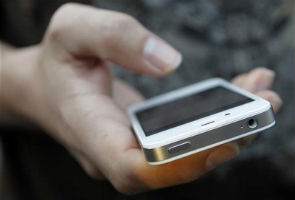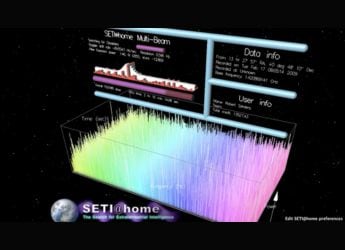An iPhone app helps identify thyroid disease

Researchers led by Randy Polson, from the University of Utah have developed a device that uses an iPhone's LED flash, digital camera with collimating lens to optimise illumination and focusing.
A specially-designed app is used to collect an image of a completed Thyroid-stimulating hormone (TSH) assays to convert the image into a quantitative values.
Point-of-care TSH immunochromatographic assays (TSH assays) are widely used to screen for hypo thyroidism.
However, their acceptability is limited by the semi-quantitative nature of the test format and inability to detect low TSH values, underscoring the need for alternative devices to screen for the disease.
Using a light pipe, the researchers showed that an iPhone was able to detect whole-blood TSH concentrations as low as 0.1 mIU/L.
Hypothyroidism occurs when the thyroid gland produces too little thyroid hormone.
Symptoms may include feeling run down, slow, depressed, sluggish, cold, tired, having dry skin and hair, constipation, muscle cramps, or weight gain.
The most common cause of hypothyroidism, worldwide, is lack of iodine in the diet.
The findings were presented at the 82nd Annual Meeting of the American Thyroid Association (ATA) in Quebec City, Canada.
Catch the latest from the Consumer Electronics Show on Gadgets 360, at our CES 2026 hub.
- Samsung Galaxy Unpacked 2025
- ChatGPT
- Redmi Note 14 Pro+
- iPhone 16
- Apple Vision Pro
- Oneplus 12
- OnePlus Nord CE 3 Lite 5G
- iPhone 13
- Xiaomi 14 Pro
- Oppo Find N3
- Tecno Spark Go (2023)
- Realme V30
- Best Phones Under 25000
- Samsung Galaxy S24 Series
- Cryptocurrency
- iQoo 12
- Samsung Galaxy S24 Ultra
- Giottus
- Samsung Galaxy Z Flip 5
- Apple 'Scary Fast'
- Housefull 5
- GoPro Hero 12 Black Review
- Invincible Season 2
- JioGlass
- HD Ready TV
- Laptop Under 50000
- Smartwatch Under 10000
- Latest Mobile Phones
- Compare Phones
- Tecno Spark Go 3
- iQOO Z11 Turbo
- OPPO A6c
- Samsung Galaxy A07 5G
- Vivo Y500i
- OnePlus Turbo 6V
- OnePlus Turbo 6
- Itel Zeno 20 Max
- Lenovo Yoga Slim 7x (2025)
- Lenovo Yoga Slim 7a
- Lenovo Idea Tab Plus
- Realme Pad 3
- Garmin Quatix 8 Pro
- NoiseFit Pro 6R
- Haier H5E Series
- Acerpure Nitro Z Series 100-inch QLED TV
- Asus ROG Ally
- Nintendo Switch Lite
- Haier 1.6 Ton 5 Star Inverter Split AC (HSU19G-MZAID5BN-INV)
- Haier 1.6 Ton 5 Star Inverter Split AC (HSU19G-MZAIM5BN-INV)












